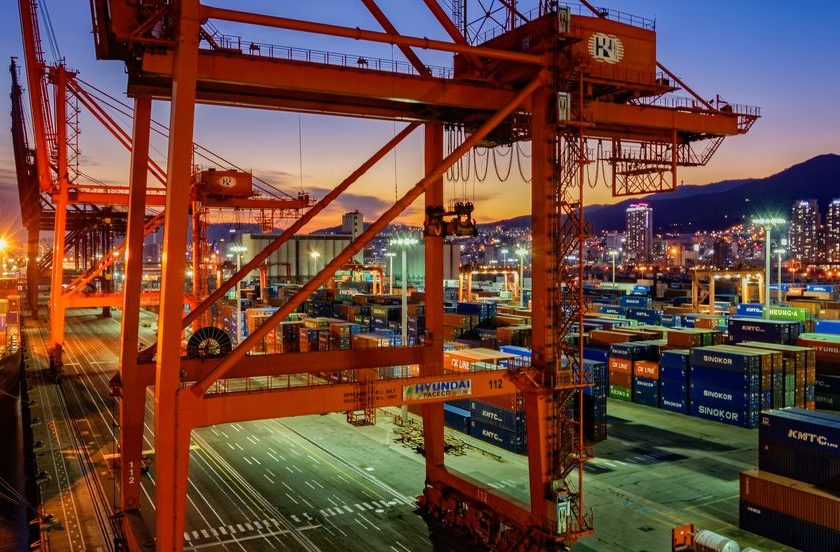Full automation for Dongwon
NewsBusan’s newest automated terminal features AGVs produced in a partnership between VDL and Hyundai Rotem.
The ongoing expansion project is anticipated to extend until approximately 2040-2050, and the estimated cost upon completion is to reach US$32 billion.

Busan’s New Port has expanded its capacity once more with the inauguration of its seventh container terminal. President Yoon Suk Yeol of South Korea graced the opening ceremony, which took place on Friday.
Situated in Changwon, approximately 298 kilometres southeast of Seoul, the facility spans land across Busan and Changwon. It marks a significant milestone as the country’s first fully automated terminal, including remotely controlled ship-to-shore cranes manufactured domestically.
This automation will enhance productivity by up to 20 per cent compared to conventional ports, while simultaneously mitigating safety risks, as emphasized by the presidential office.
President Yoon has committed to extending the tonnage taxation system, a method wherein shipping companies are taxed based on the net tonnage of their fleet rather than their profits, thereby alleviating their tax burden compared to corporate taxes. This extension comes in response to industry demands, as the system was set to expire at the year’s end.
Furthermore, Yoon has pledged substantial government funding amounting to 5.5 trillion won (US$4.07 billion) to support national shipping companies in fleet expansion and transitioning towards eco-friendly operations.
The inception of Busan’s New Port dates back to 2006. The ongoing expansion project is anticipated to extend until approximately 2040-2050. The Busan Port Authority estimates the total project cost upon completion to reach US$32 billion.
Container traffic at the Port of Busan reached a historic high of 22.75 million TEU last year, indicating a 3.1% increase from the previous year.
As WorldCargoNews reported in March, Dubai-based terminal operator DP World has assigned USD 50 million investment to develop a new logistics centre in Busan New Port.
By subscribing you will have: